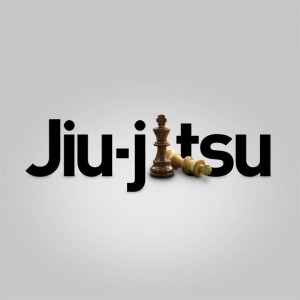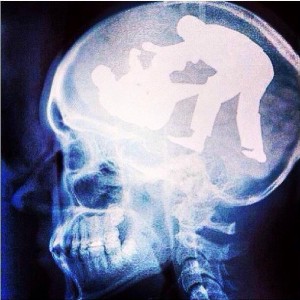Surviving and Excelling through the Plateau
No matter the rank, no matter the skill, the plateau can seem unavoidable or inescapable. Eventually the amount of skill begins to level and the improvements taper off. I’ve seen my share of training partners begin to beat themselves down about not improving, or feeling as if they are regressing, feeling as if it has been months since they felt that acceleration and exuberance of jiu-jitsu progression. The way all jiu-jitsu practitioners react when they know they have learned something new, the bright glow of knowledge plainly seen on the face by all those around. But, how can we continue this experience? How can we avoid the dreaded pitfall of plateauing in our training?
When you’re experience the feeling of a plateau in jiu jitsu, do not worry, as it will be easy to get through if you stay focused. Next, reflect on your most recent training and look for the patterns that lead to plateaus.
Avoid Enjoying Comfort
 Jiu Jitsu has often been called “human chess,” and just like in chess there is planning and strategy. Starting a session without a plan will lead to minimal success, but the same goes if you use the same plan over and over. Opponents will catch on to what is happening and begin to counter your strategy. Right now it’s too comfortable, success is happening, the moves being used are effective, there is no longer the need for improvement. Watch out because the plateau is near! Being comfortable is a good feeling, but it will diminish the progress of skill. There has to be a need to leave the comfort zone and swim in the unchartered waters of jiu jitsu. Look to try new positions on offense and defense. Instead of starting a sparring session on the feet or on the knees, how about start with the opponent on your back or in side mount? This presents a new set of challenges and a new set of movements that need to be learned and practiced. Mix it up, start from the worst position and see what is possible from there. I was once told, “If you are not uncomfortable, then you’re not learning.” All these new techniques and positions will be exactly that at first – uncomfortable.
Jiu Jitsu has often been called “human chess,” and just like in chess there is planning and strategy. Starting a session without a plan will lead to minimal success, but the same goes if you use the same plan over and over. Opponents will catch on to what is happening and begin to counter your strategy. Right now it’s too comfortable, success is happening, the moves being used are effective, there is no longer the need for improvement. Watch out because the plateau is near! Being comfortable is a good feeling, but it will diminish the progress of skill. There has to be a need to leave the comfort zone and swim in the unchartered waters of jiu jitsu. Look to try new positions on offense and defense. Instead of starting a sparring session on the feet or on the knees, how about start with the opponent on your back or in side mount? This presents a new set of challenges and a new set of movements that need to be learned and practiced. Mix it up, start from the worst position and see what is possible from there. I was once told, “If you are not uncomfortable, then you’re not learning.” All these new techniques and positions will be exactly that at first – uncomfortable.
Set Weekly or Daily Goals
Every day or every week should be a challenge. This is important for all practitioners not just competition grapplers. Beginners make a plan for the week, more advanced students should have daily goals. For example, if a white belt is having trouble escaping from side control, they can set a plan for the week, “I will escape side control 15 times.” Now it can be as simple as that or more advanced, “Transition from back control to arm bar, if opponent sits up, transition to triangle.” Now that this plan is in the mind, performance and confidence will soon follow. At the end of each session or week, there should be a moment of reflection. Was the goal achieved? If not, what happened? And what will be changed to complete the goal next time? These small goals will become milestones of achievements once placed on a regular basis.
Reflection and Emulation
 Usually this is for people who are competing but it has great significance for all students. During the plateau phase, the amount of knowledge that sticks begins to shrink. Reflecting on past training sessions can do wonders to explain where there is need for improvement. After every session, a few minutes should be spent just understanding how the day or week went. Talk with training partners; ask where they thought the best position for them was and what position put them in the most trouble. Open dialogue between students after sparring can really open eyes to several new techniques and adjustments to succeed. Another way of going about this is through emulation. Spend a little time watching the top athletes in their matches, see what they do, try to find demonstrations of techniques you wish to try. The next training session, set a goal to complete a new technique.
Usually this is for people who are competing but it has great significance for all students. During the plateau phase, the amount of knowledge that sticks begins to shrink. Reflecting on past training sessions can do wonders to explain where there is need for improvement. After every session, a few minutes should be spent just understanding how the day or week went. Talk with training partners; ask where they thought the best position for them was and what position put them in the most trouble. Open dialogue between students after sparring can really open eyes to several new techniques and adjustments to succeed. Another way of going about this is through emulation. Spend a little time watching the top athletes in their matches, see what they do, try to find demonstrations of techniques you wish to try. The next training session, set a goal to complete a new technique.
Stay focused on developing a jiu jitsu game, and remember that there is always new knowledge out there to absorb. Being good at a small number of techniques is good but at points the feeling of plateauing can capture any student. Continue the growth by implementing a constant stream of improvements through avoiding comfort, setting goals, reflection and emulation.
Credits: Levi Rowe
Gracie Barra Santa Barbara
Check his blog at: Jiu Jitsu Scholar.

